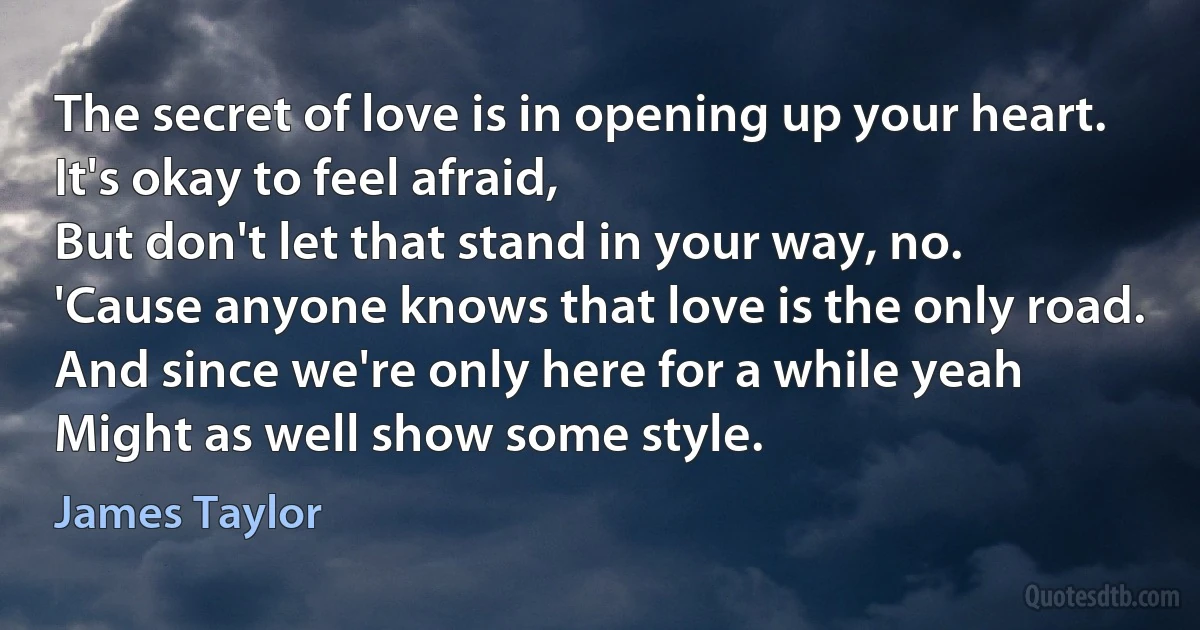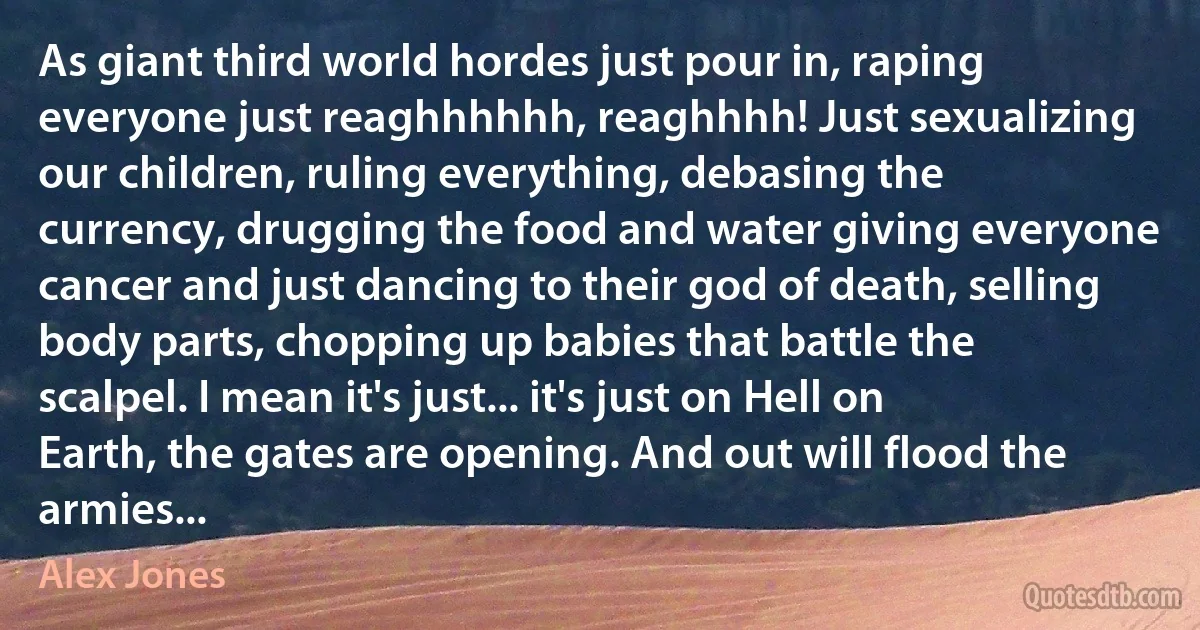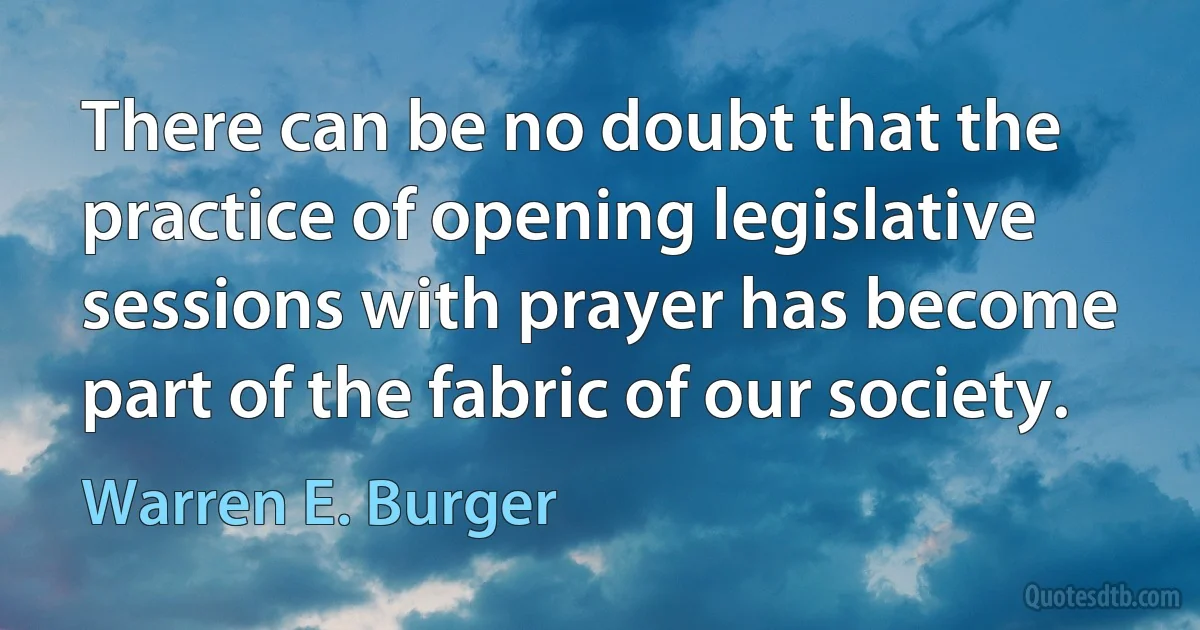Opening Quotes - page 10
For some time I debated over whether I should start these memoirs at the beginning or at the end, that is, whether I should put my birth or my death in first place. Since common usage would call for beginning with birth, two considerations led me to adopt a different method: the first is that I am not exactly a writer who is dead but a dead man who is a writer, for whom the grave was a second cradle; the second is that the writing would be more distinctive and novel in that way. Moses, who also wrote about his death, didn't place it at the opening but at the close: a radical difference between this book and the Pentateuch.

Joaquim Maria Machado de Assis
It was like living half your life in a tiny, stuffy, warm gray box, and being moderately happy in there because you knew no better...and then discovering a little hole in one corner of the box, a tiny opening which you could get a finger into, and tease and pull at, so that eventually you created a tear, which led to a greater tear, which led to the box falling apart around you...so that you stepped out of the tiny box's confines into startlingly cool, clear fresh air and found yourself on top of a mountain, surrounded by deep valleys, sighing forests, soaring peaks, glittering lakes, sparkling snowfields and a stunning, breathtakingly blue sky. And that, of course, wasn't even the start of the real story, that was more like the breath that is drawn in before the first syllable of the first word of the first paragraph of the first chapter of the first book of the first volume of the story.

Iain Banks
Talking to cancer victims never makes me feel righteous, never vindicated. It makes me slightly ill and for some reason, guilty. If people like me would just keep our mouths shut, people like him would never suspect why they got cancer. They'd chalk it up to God or probability. They wouldn't die with hearts full of venom.
It is a strange world that Industry has made. Kind of a seething toxic harbor, opening out on a blue unspoiled ocean. Most people are swimming in it, and I get to float around on the surface, on my Zodiac, announcing that they're in trouble. What I really want to do is make a difference. But I'm not sure I have, yet.

Neal Stephenson
I often think that there was nothing more exciting and erotic than getting a glimpse of a woman's leg at the top of her stockings. There's something about that white bulge and for anybody who grew up in my time, nothing replaces that, nothing. I remember I had a girlfriend when I was 16 and she had this bra – it used to open down the front – which I thought was absolutely wonderful. It was like opening a tabernacle.

John Banville
We all have our little solipsistic delusions, ghastly intuitions of utter singularity: that we are the only one in the house who ever fills the ice-cube tray, who unloads the clean dishwasher, who occasionally pees in the shower, whose eyelid twitches on first dates; that only we take casualness terribly seriously; that only we fashion supplication into courtesy; that only we hear the whiny pathos in a dog's yawn, the timeless sigh in the opening of the hermetically-sealed jar, the splattered laugh in the frying egg, the minor-D lament in the vacuum's scream; that only we feel the panic at sunset the rookie kindergartner feels at his mother's retreat. That only we love the only-we. That only we need the only-we. Solipsism binds us together, J.D. knows. That we feel lonely in a crowd; stop not to dwell on what's brought the crowd into being. That we are, always, faces in a crowd.

David Foster Wallace
Hutton became very critical of a system where appointments depended not on merit but on the support of those in power. Of one possible opening for Watt he wrote, ‘I think it only needs to have a man properly bestir himself but that is what few political people do unless to serve themselves.

Stephen Baxter
I like the sun, Alice
and doves, a good cigar,
a spanish guitar, jumping walls
and opening windows
and when a woman cries.
I like wine as much as flowers
and rabbits but not tractors,
homemade bread and Dolores' voice
and the sea wetting my feet.
I like to always be lying on the sand
or chasing Manuela on a bicycle
or all the time to see the stars
with Maria in the hayfield.
I'm not from here, I'm not from there,
I have no age, nor future,
and being happy is my color of identity.

Facundo Cabral
How on earth are the Chancellor and the Governor of the Bank of England, commending the 'Hard ECU' as they strive to, to be taken as serious participants in the debate against that kind of background noise? I believe that both the Chancellor and the Governor are cricketing enthusiasts, so I hope that there is no monopoly of cricketing metaphors. It is rather like sending your opening batsmen to the crease only for them to find, the moment the first balls are bowled, that their bats have been broken before the game by the team captain.

Geoffrey Howe
There is no doubt in my mind that the advent of Khomeini's Islamic Republic in 1979, which turned my homeland into the cradle of modern day Islamic radicalism, was instrumental in opening the flood gates for the spread of militant anti-Western Islamic tendencies, not just in the Middle East region, but throughout the Islamic world. Moreover, it turned one of the World's richest and most strategic countries into a launching pad for spreading state-sponsored terrorism in addition to becoming the Godfather of numerous sub-state entities that are today destabilizing the entire Middle East region.

Reza Pahlavi
Bob Hope will go to the opening of a phone booth in a gas station in Anaheim, providing they have a camera there and three people. He'll go to the opening of a market to receive an award. He'd get an award from Thom McCan for wearing their shoes. It's pathetic. It's a bottomless pit. A barrel that has no floor. He must be a man who has an ever-crumbling estimation of himself. He's constantly filling himself up. He's like a junkie – an applause junkie. What happens to those people when they can't get up and do their shtick, God only knows. Bob Hope, Christ, instead of growing old gracefully or doing something with his money, be helpful, all he does is he has an anniversary with the President looking on. It's sad. He gets on an airplane every two minutes always going someplace. It didn't bother him at all to work the Vietnam War. Oh, he took that in his stride. He did his World War II and Korean War act. "Our boys" and all that. He's a pathetic guy.

Marlon Brando
I can only explain to some artists, who would be my collaborators and not my pupils, the method by which, in my opinion, one becomes a painter, by which I myself have tried to become one since my earliest days, leaving to each person the complete control of his individuality, the full liberty of his own expression in the application of this method. To achieve this aim, the organization of a communal studio, recalling those extremely fruitful collaborations of the studios of the Renaissance, could certainly be useful and contribute to the opening of the era of modern painting.

Gustave Courbet
All I can say is that I am well. I have the enemy closely hemmed in all round. My position is naturally strong and fortified against an attack from outside. I have been so strongly reinforced that Johnston will have to come with a mighty host to drive me away. I do not look upon the fall of Vicksburg as in the least doubtful. If, however, I could have carried the place on the 22nd of last month, I could by this time have made a campaign that would have made the State of Mississippi almost safe for a solitary horseman to ride over. As it is, the enemy have a large army in it, and the season has so far advanced that water will be difficult to find for an army marching, besides the dust and heat that must be encountered. The fall of Vicksburg now will only result in the opening of the Mississippi River and demoralization of the enemy. I intended more from it. I did my best, however, and looking back can see no blunder committed.

Ulysses S. Grant
Our Nation has associated itself with other great powers for the purpose of promoting peace in the regions of the Pacific Ocean. It has steadily refused to accept the covenant of the League of Nations, but long before that was thought of, before the opening of the present century, we were foremost in promoting the calling of a conference at The Hague to provide for a tribunal of arbitration for the settlement of international disputes. We have made many treaties on that basis with other nations.

Calvin Coolidge
The judiciary. The docket of the Supreme Court is becoming congested. At the opening term last year it had 592 cases, while this year it had 687 cases. Justice long delayed is justice refused. Unless the court be given power by preliminary and summary consideration to determine the importance of cases, and by disposing of those which are not of public moment reserve its time for the more extended consideration of the remainder, the congestion of the docket is likely to increase. It is also desirable that Supreme Court should have power to improve and reform procedure in suits at law in the Federal courts through the adoption of appropriate rules. The Judiciary Committee of the Senate has reported favorably upon two bills providing for these reforms which should have the immediate favorable consideration of the Congress.

Calvin Coolidge



